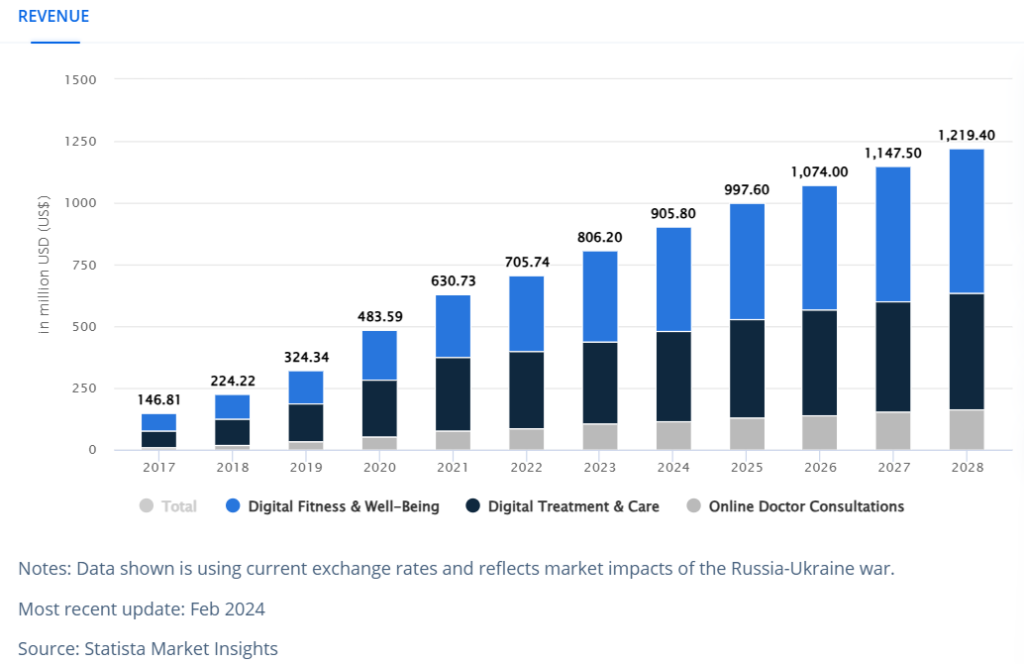Overview of Vietnam’s Digital Health Market
According to a recent study by Market Research Vietnam, the Digital Health market in Vietnam is on the verge of substantial growth, with projections estimating a market value of US$905.8 million by 2024. The market is anticipated to expand at a compound annual growth rate (CAGR) of 7.71% from 2024 to 2028, reaching an estimated value of US$1.22 billion by 2028.

Key Drivers in the Digital Health Surge
The increasing preference for digital health solutions among Vietnamese consumers is primarily driven by convenience and ease of access. Due to busy lifestyles and the limited availability of traditional healthcare options, more people are turning to online doctor consultations and digital fitness platforms. The younger, tech-savvy population is particularly contributing to this trend.
A clear shift towards the integration of technology in healthcare services is evident in Vietnam. The Digital Fitness & Well-Being segment is projected to be the largest, with revenues expected to reach US$422.90 million by 2024. Digital fitness applications, which offer personalized workout plans and health tracking features, are gaining traction. The rise of online doctor consultation platforms allows patients to receive medical advice remotely. Additionally, digital treatment and care services, such as telemedicine and remote monitoring, are becoming more widespread as healthcare providers strive to extend their reach.

Key Market Players and Brand Shares
Several prominent players are driving the growth of Vietnam’s digital health market. In 2022, the market share distribution among leading brands included:
- Fitbit: 7%
- Strava: 7%
- Noise: 5%
- Omron: 5%
- Daily Yoga: 4%
- Beurer: 3%
- Sweatcoin: 3%
- Withings: 3%
- Samsung: 2%
- Braun: 2%
Unique Market Conditions in Vietnam
Several unique conditions contribute to the growth of Vietnam’s digital health market. The country has a youthful and tech-savvy population that readily adopts digital solutions. Additionally, government support for digital health initiatives is fostering innovation and attracting investments in the sector. The rising middle class in Vietnam is also boosting the demand for high-quality healthcare services, making digital health solutions increasingly appealing.

Macroeconomic Influences in Vietnam Market
The swift digitalization of Vietnam’s healthcare sector is driven by several macroeconomic factors. Enhanced internet infrastructure and high smartphone penetration rates make digital health services more accessible to the population. Additionally, increasing disposable income levels enable more people to invest in their health and well-being, further fueling the growth of the digital health market.
Conclusion
Vietnam’s digital health market is experiencing notable growth and transformation, spurred by the rising adoption of digital fitness and well-being, online doctor consultations, and digital treatment and care services. Insights from Market Research Vietnam underscore the sector’s potential, highlighting the importance of understanding consumer preferences and market trends. The data derived from the Vietnam digital healthcare report outlines the unique conditions and favorable macroeconomic factors that are paving the way for continued innovation and expansion in the digital health landscape.
By leveraging the insights provided by Market Research Vietnam, stakeholders can effectively seize the opportunities within this rapidly evolving market.

